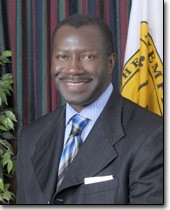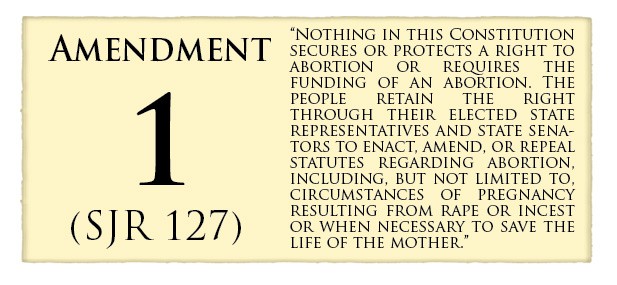The 2015 Memphis mayor’s race can be considered underway, at least informally, following the announcement this week that city Councilman Harold Collins has formed an exploratory committee to consider seeking the office.
Collins has made two hard-hitting public appearances in the past week. In the first of these, at the Frayser Exchange Club last Thursday, Collins characterized recent outbreaks of mob violence by youths as “urban terrorism” and called for more direct action against offenders than is currently the practice at a Juvenile Court undergoing reforms at the behest of the U.S. Department of Justice.
Participants in “serious crimes,” which Collins defined as including mob actions like those at Poplar Plaza last month and in the vicinity of Crump Stadium last Friday night, should face a prosecutor, a judge, and the prospect of jail “within 24 hours,” the councilman said.

Councilman Harold Collins
In a meet-and-greet at the Evergreen Grill Monday night, Collins repeated that formulation and made an aggressive pitch as well for an enhanced summer jobs program for disadvantaged youth, as well as expanded mental-health programs.
He also charged that Mayor A C Wharton’s
current administration had done little to acquaint small-businesses owners with the fact that city funding had long been available to help them expand and prosper. “They’ve done a terrible job of getting the word out,” he said.
Collins went on to allege that, following the election of Wharton as mayor in 2009, “Nothing changed except on the seventh floor,” which is where the mayoral offices are.
Others known to be considering races for mayor next year, besides Wharton and Collins, are city councilmember Jim Strickland, former councilmember Carol Chumney, current Shelby County Commissioner Steve Basar, and former Commissioner James Harvey. The names of Councilman Myron Lowery and former Memphis School Board member Kenneth Whalum have also received mention.
• Proponents and opponents of the various state amendments have been engaging in a good deal of arithmetical calculation, based on a unique formula called for in the state Constitution.
It works this way: An amendment is deemed to have passed if it nets a number of votes equal to a majority of the votes cast in the governor’s race. Similarly, an amendment fails if the votes for it total less than a majority of the votes in the gubernatorial race.
As it happens, this year’s race for governor is, by universal consent, a shoo-in for Republican incumbent Bill Haslam. The state’s weakened Democratic Party emerged from its virtually unnoticed August 7th primary with a nominee, retired East Tennessee contractor Charlie Brown, whose only claim to fame was the similarity of his name to that of a cartoon character and whose resources for a serious race are essentially nil. And Haslam is otherwise confronted by an array of generally unknown independents.
The situation is hardly a recipe for a massive voter turnout in the gubernatorial race, so that the threshold of success for each of the four proposed constitutional amendments begins at a fairly low level. That fact makes any prediction regarding the outcomes of the amendment votes uncertain.
Amendment 1, which would cut into the blanket protection of abortion rights provided by a state Supreme Court decision of 2000, declaring the state neutral on abortion, and restricting privileges to those enabled by federal judicial authority, is by all odds the most controversial and the most intensely contested.
Addressing a Vote No on 1 rally held at the Racquet Club last week by the Tennessee Democratic Party, 9th District congressman Steve Cohen held forth on the threshold issue, telling the pro-choice activists in attendance that bypassing the governor’s race would work against their interests and increase the chances of passage for the amendment.
It was urgent, therefore, said Cohen, that they should vote in the governor’s race. Cohen offered his own preferred candidate — John Jay Hooker, an octogenarian Nashville lawyer who, at intervals in the previous century, had been a serious Democratic prospect for governor but who, many fits and starts later, is best known these days as a litigant for direct election of state appellate judges (a matter which, as noted below, is at the heart of another amendment on the November ballot).
“Do what I’m going to do. Vote for John Jay!” said Cohen.
Speaking to reporters after yet another rally, this one held at the Kroc Center on Monday on behalf of Amendment 2, Governor Haslam addressed the converse possibility — that proponents of this or that amendment might be advocating a de facto boycott of the governor’s race in order to lower the voter threshold for their amendment.
“I obviously don’t like that,” Haslam said. “I think it’s important for people to understand all four of the amendments and to vote for anything on the ballot.”
At the rally, a panel consisting of Haslam and former state Supreme Court Justice George Brown of Memphis, with lawyer Monica Wharton serving as moderator, had made the case for Amendment 2, which the governor said was necessary to provide “clarity and predictability” on the matter of appointing appellate judges.
As Haslam noted, the amendment would make it “clear in the law that what we’re doing now does fit the definition of the Constitution, adding one step, that the legislature can approve or disapprove” an appointment, giving the governor a chance to respond within 60 days. At present, the state employs the so-called “Tennessee Plan,” allowing gubernatorial appointments of appellate judges, who are then subject to yes-or-no retention elections at eight-year intervals.
Both Brown and Haslam suggested that appellate judges were in the position of impartial referees in athletic contests. Playing to local sensitivities, Haslam said, it wouldn’t do for a referee in a Grizzlies game to have “a Kevin Durant jersey” on under his striped shirt.
Haslam made a bit of fresh news when he told reporters afterward that he supported all four of the amendments on the November ballot, including Amendment 1, which he characterized as allowing the state’s laws on abortion “to match what the federal laws are.”
• The great Charlie Cook, whose widely syndicated “Cook Report” is one of the most respected political tout sheets in the country, made an appearance at Rhodes College, Monday, under the auspices of the school’s political-science and history departments.
Speaking in Barrett Library on the subject of “Why is D.C. Dysfunctional?” Cook outlined the current dismal approval rates of President Obama and congressional Republicans in opinion polls and said, “Nobody’s happy.” He noted that Republicans were progressively losing support with minorities, younger Americans, and women — all categories whose proportion is growing in the electorate — and suggested that the GOP would be well advised to “shut the hell up” about social issues.
Democrats have their problems, too — including a growing public unease concerning the leadership of Obama, particularly in the realm of foreign policy, which has attained an unusual degree of importance with voters, Cook said.
The GOP can expect modest gains in both House and Senate this year, but not enough to affect the enduring state of gridlock, predicted the noted analyst.
He was cautious about predictions concerning 2016 presidential prospects, though he did say there was “a 25 to 30 percent chance” that, despite expectations, Hillary Clinton would not seek the Democratic nomination.
Cook, whose wife is from Memphis, is a frequent visitor to the city.
